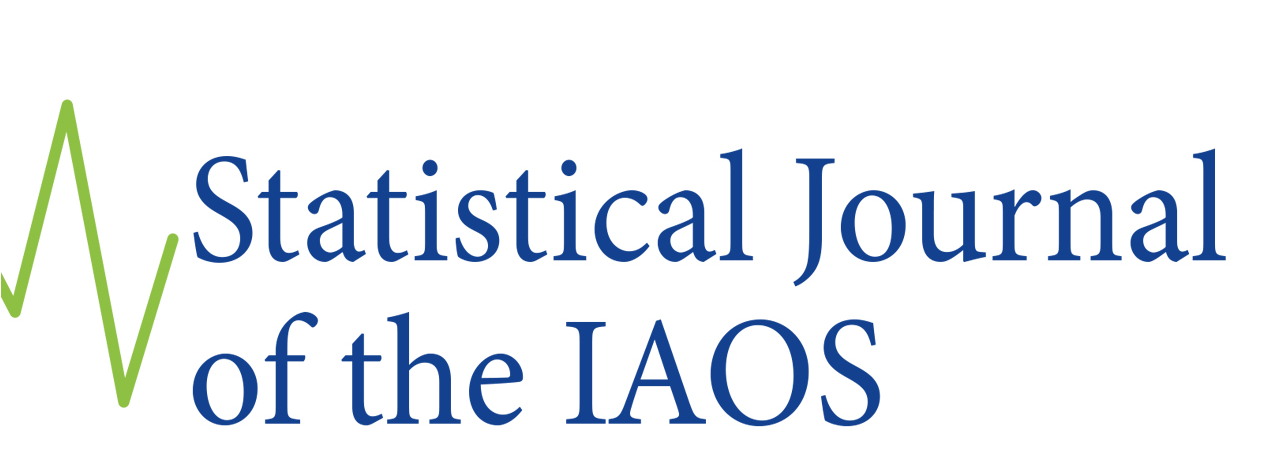
This discussion ‘the impact of AI and the availability of data in the so-called Data ecosystem on the development of official statistics’ builds on the reflection in the editorial in the June 2023 issue.
This discussion is joined with the 17th discussion (September 2023) 'Artificial intelligence: an opportunity, a challenge or a threat for official statistics’.
These discussion topics invite readers to react with their opinion on how far and in what direction the governance of official statistics will change thanks to these developments and to what extent these Developments are threats and/or opportunities.
The readers are specifically invited to sketch in a maximum of 500 words how in their opinion the (national) statical offices in 2030 are functioning. The contributors are free to choose an emphasis for the production and dissemination but are equally invited to reflect on the governance structures in official statistics in 2030.
hadisusanto
Implementing AI in Official Statistics Compilation
The capacity of artificial intelligence (AI) to fundamentally transform the generation of authoritative statistics is enormous. The increasing implementation of artificial intelligence (AI) methods within national statistical offices (NSOs) offers prospects for the automation of monotonous duties, the extraction of valuable insights from innovative data sources, and the enhancement of analytical capabilities. Notwithstanding this, measures must be implemented to guarantee that AI outcomes adhere to formal statistical standards.
The General Statistical Business Process Model (GSBPM) functions as the fundamental framework that regulates the generation of credible statistics. Multiple phases of GSBPM, including data collection, coding, validation, analysis, and dissemination, are amenable to AI enhancement. The Generic Activity Model for Statistical Organizations (GAMSO) specifies additional domains of function in which AI can provide assistance: data services, statistical production, and methodology.
A potential risk is behavioral drift, which transpires when AI models adjust their outputs in accordance with insights gained from data. This poses a challenge due to the fact that official statistics are predicated on certainty, consistency, and comparability. Without a doubt, NSOs should proactively audit AI systems and mitigate risks via rigorous testing and transparent operations.
In order to optimize the efficiency of AI implementation, NSOs may deem the establishment of a unified AI server to be advantageous. By integrating shared infrastructure, tools, methods, and models, NSOs can optimize their utilization of artificial intelligence. Collaborative approaches facilitate technical assistance in addition to compliance monitoring, technical support, and the promotion of transparency.
The inclusion of topics such as performance evaluation, algorithm selection, model development, oversight, and data management could be included in a manual on the application of AI to official statistics. Global standards will facilitate wider adoption while ensuring the quality of statistics.
In order for nations to realize the full potential of artificial intelligence, persistent statistical capacity gaps must be closed. Regional cooperation and international assistance programs that prioritize AI tools and skills have the potential to augment capabilities.
In the end, a broader consensus is required to establish appropriate regulatory frameworks pertaining to the oversight of AI accountability, data access, and privacy protection. Establishing public trust in data sharing and showcasing the reliability of artificial intelligence are of utmost importance. Cooperation and prudent policy implementation facilitate the secure realization of the revolutionary capabilities of artificial intelligence (AI) in the realm of official statistics by NSOs.
In conclusion, despite the immense potential that AI demonstrates, it also poses challenges in the areas of transparency and behavioral drift. NSOs can leverage AI while upholding statistical standards through the implementation of infrastructure sharing, capacity building, regulations, and utilization guidelines. In official statistics, global cooperation is essential for the full realization of AI's benefits.
Hadi Susanto
hdssnt@gmail.com
